As discussed in the last post, compound interest is your friend when it comes to growing wealth. If you gain some cash through work and invest it, compounding will make it grow. This will be slow at first, but in the end, your money will be making money, your interest earning interest, resulting in some really amazing amounts of growth.
Compound interest has a darker side, however, that happens when you get into debt. If you start with a large balance like a home loan or a student loan, it keeps you from making any progress unless you really attack the debt. More insidious,\ are loans that start out as small amounts and then grow with time, like small initial credit card balances where it seems like paying the debt takes nothing at all but then grow as you add purchases each month. With these types of loans, if you let the debt get too large pass a threshold where all you’re paying each month is interest instead of paying down the balance, it can become totally unmanageable. Let’s look at both of those cases and see what role compound interest plays in each.

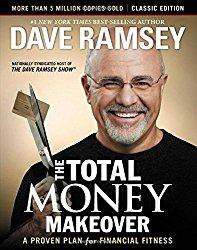
Learn to master your money with these great books from Amazon.
The Big Initial Debt
Remember that the effect of compounding is that interest generated causes your balance to grow, which in turn increases the amount of interest charged. If you owe money, this means that you’ll be paying interest on your interest. You are paying interest on money that you did not even get to spend on anything!
With a large loan like a home mortgage or a student loan, when you first start out and the balance is large, you’ll be charged a lot of interest each month. This is because you interest payment at the end of each compounding period equals your interest rate times your balance for the period . When you are first starting, the loan balance is big so the amount of interest you are charged is big. When you nearly have the loan paid off, the balance is low so the amount of interest charged each month is low. For example, if you have a home loan and your mortgage interest rate, i, is 12% per year and it compounds (charges you interest) monthly, for a $100,000 loan, B, the interest after the first month would be:
i/12*B = 12%/12*($100,000) = $1,000.
At the end of the first month, while you only borrowed $100,000 to start with, you’d now owe $101,000. You owe $1000 just for using their money! If you only paid $1000 as a payment for the month, your loan balance would return to $100,000, but then at the end of the next month, like magic, you would owe $1,000 again! Your loan balance would never go down since the interest would build up each month by the time you made the next payment.
Learn more about compounding and personal finance with these great books from Amazon.
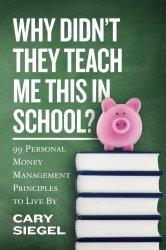
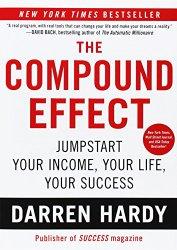
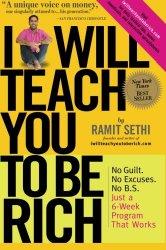
A Growing Small Debt
Loans are normally designed to allow you to pay them off in a certain period of time. For example, with a 30-year mortgage, the payments are designed such that if you pay the payment each month for 30 years, you’ll pay off the loan with the last payment. For a 30-year loan with a 12% interest rate on a $100,000 home, the payment would be (use a mortgage calculator to run your own cases) $1028.61 per month. Because you paid an extra $28.61 beyond the interest that built up at the end of the first month (remember you’d be charged $1000 in interest after the first month), your loan balance after the first month’s payment would now be: $99,971.39. This is still a lot like $100,000, but at least you’ve made a little progress. In the next month, you would only owe $999.71, so you would pay off $0.29 cents more of the principal owed on the loan with your $1028.61 payment, so your loan would be $28.90 after you made the second payment. Each month after that you would be paying off a little more of the loan because you would owe a little less interest each month since the balance was shrinking.
Things to know when you’re paying off a big balance on payments:
1. If you don’t pay at least the interest payment, your balance (and the amount of interest you are charged each month)will increase and you’ll never pay it off. At 12%, the amount you owe will double every five years. At 6%, this will happen every ten years.
2. Paying more than the minimum due makes a huge difference at the start of the loan, but little difference at the end. In fact, if you were to pay an extra $28.61 ($1028.61 for your first payment) in our example instead of just paying the payment due ($1,000), you would eliminate one payment entirely. That $29 would save you $1,000 over the life of the loan. Pay an extra $1,000 the first month, and you’ll save about 30 payments, or $30,000! Pay your loan off one month early with an extra $1,000 at the end, and you’ll only save $10.
3. The higher the interest rate, the higher your payments to keep the balance declining. If you only had a 6% interest rate in our example, you would only be charged $500 in interest the first month, so as long as you paid more than $500, your balance would be declining. You would also pay a lot less over the life of the loan.
4. If you aren’t making payments, the loan balance grows really fast. If you have student loans deferred or get a “free month” from your mortgage lender for making your payments on time, it means you will be paying interest on interest, where balances can really grow fast.
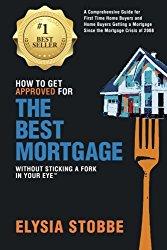
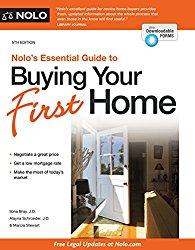

With a large loan you take on purposely, at least you know what your payments are and what you’re getting into from the start. More dangerous is a small loan that you add to each month, because there the payment can grow quickly and overwhelm you. That is why a lot of people go bankrupt due to credit card debt and consumer loans such as home lines-of-credit. An additional factor in these types of loans, particularly credit cards, is that the interest rates are usually much higher than they are for home loans, are not fixed, and can even increase rapidly if you miss a payment or some other event occurs. In such cases many credit card agreements allow the company to hike your rates up to 25% or more.
The interest works the same way with these loans as they did with the mortgage or student loan payments, where if the interest rate is 18% and you owe $1,000, you’ll owe $1180 at the end of the month. The issue is that most people naturally will take on debt and payments until they have little or no free income at the end of the month — their paycheck equals their payments. This means that if they need to pull out a credit card to cover an “emergency” like a car repair or a vacation, then they have a new interest payment for which they do not have any spare income to cover. Also, if you’re already sending most of your take-home pay out each month, it is difficult to then start to pay down credit card debt, particularly when there is interest added on top.
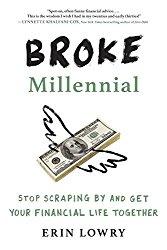
Just as happened with saving and investing where you got very little in interest at the beginning when the account balance was small and a whole lot at the end when it was big, credit card interest payments will be small while the account balance is small. At some point, however, it can reach the tipping point where the interest amounts become really big and you struggle just to pay the interest, let alone pay down the debt. Suddenly you’re just barely able to cover the minimum payment, which is mostly interest and barely affects the balance as was the case with the home loan. If you then miss a payment or are unable to make the minimum, the amount you owe actually grows and the interest rate possibly jumps from 18 to 30% or more. At that rate, the amount you owe will double about every two years!
Things to know to stay out of trouble with growing small debts:
1. Just because the payment is small now, doesn’t mean it can’t become big quickly. It is amazing how quickly a little, insignificant balance can grow. There is a point of no return where the interest charges wipe out your ability to pay down the debt. It is best to not start carrying a balance in the first place.
2. Always pay off high interest small debts quickly. Ignore the minimum payment and especially ignore “skip a payment this month” months.
3. Don’t use a credit card for emergencies. Instead, keep a cash account to cover things like car repairs and medical emergencies.
This is the third post in a series on improving your financial literacy. To find the while series, select “Financial Literacy” in “Posts by Category” on the right sidebar.
Follow me on Twitter to get news about new articles and find out what I’m investing in. @SmallIvy_SI
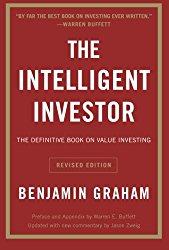
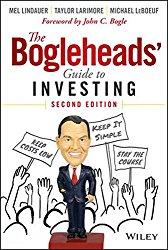
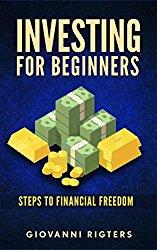
Disclaimer: This blog is not meant to give financial planning or tax advice. It gives general information on investment strategy, picking stocks, and generally managing money to build wealth. It is not a solicitation to buy or sell stocks or any security. Financial planning advice should be sought from a certified financial planner, which the author is not. Tax advice should be sought from a CPA. All investments involve risk and the reader as urged to consider risks carefully and seek the advice of experts if needed before investing.
